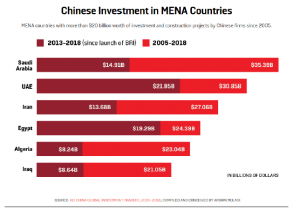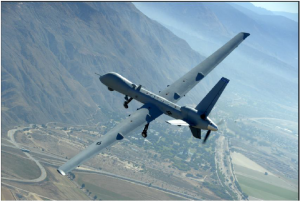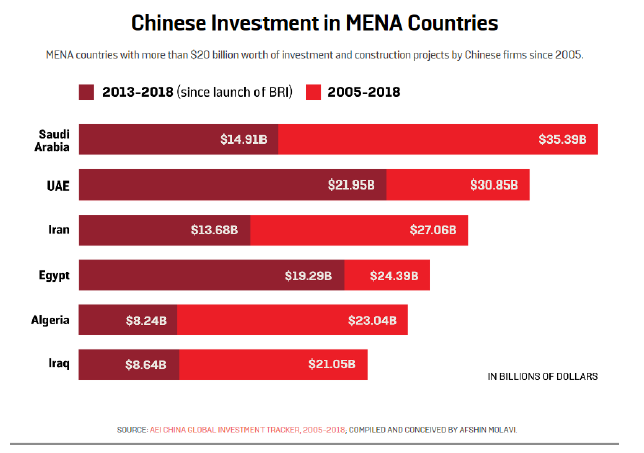The Assassination of Soleimani and China’s Great Game in the Middle East.
The assassination of Iranian Major General, Qassem Soleimani, can at first glance be explained as a major terrorist threat being eliminated by the U.S. Another plausible narrative is that the U.S. is sending a clear signal to China’s leadership, which is to think twice about their expansion plans into the Middle East. Furthermore, the Trump administration’s enlisting of Japan to patrol the Strait of Hormuz, an offensive military role being ignored by many, should not be discounted at all. China still remembers the consequences of the Second Sino-Japanese war.
Will we ever know the real reason General Soleimani was assassinated? The answer is no. In the book “The Grand Chess Board”, Zbigniew Brzezinski suggests that if a country controls Eurasia, just as China is trying to do, then they could easily challenge the U.S. global hegemonic position. How should investors process the current dramatic events taking place in the Middle East? At this point in time, an all-out war between Iran and the U.S. seems highly unlikely. However, President Trump fulfills his election promise to bring soldiers home, which implies pulling out of the Middle East. Russia and China will be sure to fill the void. In fact, the Middle East and North Africa (MENA) is the only region where Chinese investment has not declined.

The consensus view concerning China’s Belt and Road initiative (BRI) implies a focused implementation of the strategy of the Chinese Communist Party and Chairman Xi specifically. Two main narratives seem to have developed. The first focuses on the economic integration of the Eurasia Landmass, and the second focuses on the political levers China can pull to influence a weaker member of the initiative. There is a third alternative narrative, that the BRI is just a brand and a marketing tool used by China to promote that they are the true benevolent leader of the world economy. For many in the undeveloped world, this well may be the case. But for Iran, Iraq, and Syria the need to rebuild their economies with cheap Chinese capital seems quite logical. It would be easy to conjecture that the Trump administration is not happy with the agreements signed between Iraq and China in September 2019. But in the world of geopolitics, one can’t expect to have your cake and eat it too.
Countries in the Middle East are very motivated to join the BRI and are eager to receive cheap loans to build infrastructure projects, but this narrative is not a new one. The Americans, for decades, through the World Bank and the IMF have been financing infrastructure projects in the third world. John Perkins’s book, “Confessions of an Economic Hitman” is a must-read for those who are interested in the strategy of convincing leaders of the underdeveloped world to accept substantial development loans for large engineering and construction projects, making sure that these were contracted to U.S. companies. Later, the inability of these undeveloped countries to repay the loans gave the U.S. the political leverage it desired. The same debt-trap diplomacy narrative can be applied to the BRI today. But are investors missing the forest for the trees? Are we just witnessing another overbuilding bonanza by China? Could this be the classic over investment credit bubble? Or, are we seeing the consequence of the de-coupling of the global economy?
With China becoming a major player in the Middle East, one could easily conclude that it is quickly achieving its goal of being the hegemon in the Middle East and thus the assassination of Soleimani was a provocative move directed towards China, by the Trump administration. The MQ-9 Reaper drone used in the strike, fitted with Hellfire missiles, incorporates leading-edge artificial intelligence and machine learning to identify and track selected targets. The clinical assassination of Soleimani carried out by the MQ-9 drone sends a strong signal that maybe the Americans are not behind the Chinese when it comes to AI and machine learning.

For investors, the simple explanation that the U.S. had an opportunity to assassinate the world’s number one terrorist at this point, seems credible. With a Presidential Election in the U.S. taking place in 2020 and with the Chinese Communist Parity needing to achieve its major economic goals by 2021, a de-escalation should be expected by investors. However, this fluid situation should not be ignored and needs to be monitored closely. We are in the middle of a war for hegemonic control of the global economy that could last for decades. Investors should not underestimate the nuances that are currently evolving. Never take anything at face value should be the rule of the day.
James E. Thorne Ph.D.

